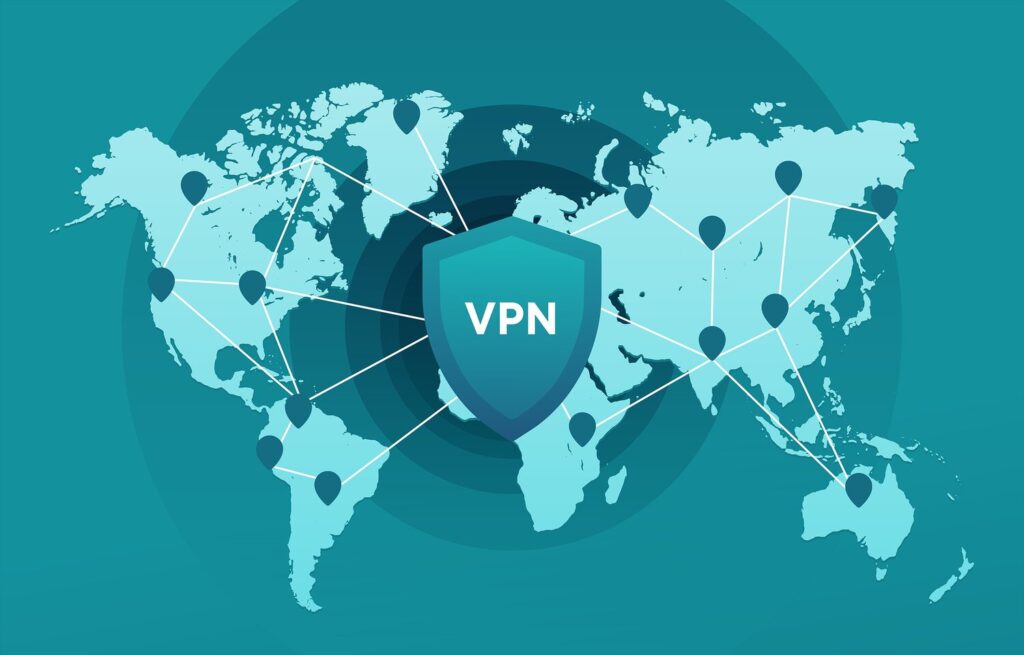
Avast VPN Review – In-Depth Breakdown (2025 Edition)
There are a few different reasons a digital nomad might want, or indeed need, a VPN.
It could be that you want to break through the local firewalls, which are restricting your internet browsing. It could be that you want to add a layer of protection to your online activity, so that your data is kept secure from nosy internet service providers and third-party trackers.
Whatever the reason, there are an increasingly large number of VPNs to choose from, which can make narrowing down the options a bit of a chore. That’s why we’ve put together a series of articles about some of the major providers and what they have to offer.
In this post, we’re going to look at Avast SecureLine VPN, which has been around for just under a decade now. It’s one of several VPNs released by cybersecurity companies who want to diversify their offering and tap into new product streams.
But how does it compare to other VPNs on the market in terms of connection speed, privacy features and streaming support? Well, let’s dive on in!
Company Background
Avast was founded way back in the mists of time – in 1988, to be exact. The brainchild of two Czech students, it is primarily known for its antivirus software, which it offers in both a free and a premium version.
Like McAfee and Malwarebytes, it has expanded its product suite over the years to include other cybersecurity services, including a secure browser and a VPN.
The company merged with fellow antivirus specialists NortonLifeLock to form Gen Digital in 2022, but it remains headquartered in the Czech Republic. The country doesn’t have any data-retention laws, which means Avast aren’t required to store any logs.
Avast’s reputation has been sullied a bit by a recent Federal Trade Commission lawsuit, which alleged that Avast collected and sold user information without user consent. The case was settled by Avast for $16.5 million just a few months ago.
While the case related to Avast’s antivirus software rather than its VPN, the concerns raised were around data privacy. Since one of the principal uses for a VPN is to protect user data, it does bring into question the trustworthiness of the company.
Core Features
Avast’s SecureLine VPN does a respectable job with its product offering, with a choice of 3 tunneling protocols and top-level encryption.
It supports Windows, Android, iOS and macOS devices, with browser extensions for Chrome and Firefox. However, there’s no option for Linux or Smart TVs.
Security & Privacy
Avast VPN lets users choose between the standard WireGuard and OpenVPN protocols, as well as its own Mimic protocol.
Its standard encryption is AES-256, although WireGuard works with ChaCha20. Both are extremely secure ciphers for protecting data.
The company doesn’t store browsing logs, but it does store some connection logs, plus data on how you use the app. It hasn’t yet had its logging policy audited, which is disappointing from a privacy perspective.
There are a couple of added security features on offer, including:
- Kill switch. When this is toggled on, the Avast SecureLine app will automatically block an internet connection if the VPN drops for any reason, so that there’s no risk of data leakage.
- Wi-Fi Threat Shield. This cool little feature scans your Wi-Fi and informs you of any potential issues with the network. It’s designed to activate when the VPN is off, so even when you’re not using the virtual private network, you can still have some level of reassurance about the safety of your connection.
Performance & Server Network
Avast offers servers in around 36 countries, although it doesn’t specify the exact number. That’s a lot fewer than most top VPN providers. Just for reference, CyberGhost operates around 11,000 servers in 100 countries, while Proton utilizes more than 9,000 servers in 117 countries.
Most of Avast’s servers are in the US and Europe, with a smattering of options around East and Southeast Asia. In the Middle East, its only options are Turkey and Israel, while there’s just South Africa in Africa.
In South American, we were only able to see Brazil, although Avast claims it also has a server in Argentina – maybe it’s just temporarily down.
Notably, Avast recently shut down operations in India, placing it alongside Russia as one of two countries where it doesn’t supply VPN services.
While the limited server network will undoubtedly cause an issue with speeds for some users, we didn’t notice an unreasonable slowdown when connecting to servers in Europe of the US. Overall, it performed well, as we’ll explain in a bit more detail further down the page.
Special Features
Avast VPN isn’t bursting with features like Surfshark or ExpressVPN, but it does cover the essentials.
The app supports split tunneling, which allows you to choose whether some websites and/or programs bypass the VPN when it is active. This can help solve some connection issues caused either by slow internet or by sites/apps blocking the VPN.
There’s also a standard auto-connect option, which lets you choose whether the VPN connects whenever you sign on to an unsecured Wi-Fi network or begin using cellular data.
Avast has had some problems in the past with its VPN blocking wireless connections to other devices on a shared network – this was a real hassle with printers in particular. To combat this problem, the company developed its local network bypass feature. When toggled on, this basically makes exceptions for devices on your network, so that they function normally.
Speed, Streaming & Torrenting Performance
SecureLine VPN does a good job with maintaining internet speeds, providing a stable connection that didn’t cause us any major issues with streaming.
Speed Test Results
First up, let’s talk about speeds in a bit more detail. We tested the VPN across three continents, assessing the download and upload rates as well as latency. In all cases, we connected using the WireGuard protocol, as this tends to be the fastest option.
We’re based in Europe, so we began by trying a German server. We experienced only a modest decrease in speed.
Downloading: 3.47%
Uploading: 5.24%
Latency: 350%
Next, we tried a server located on the east coast of the US, in NYC. The download speed was only slightly slower, but our upload speed went up a lot.
Downloading: 4.46%
Uploading: 65.32%
Latency: 2,225%
Finally, we tested a server in Japan, just to see what it would be like connecting from Asia. Speeds were down by quite a bit across the board, but then again, Japan is quite a bit further away! Plus, we’d imagine the server load is higher, given Avast’s limited options in this part of the world. The latency increased enormously, but that’s not unexpected given our distance from the server.
Downloading: 34.65%
Uploading: 70.56%
Latency: 6,275%
Streaming & P2P Support
Overall, we had a positive streaming performance with Avast. We were able to connect to almost all the streaming services we tried, accessing different Netflix and Amazon Prime libraries by geography, as well as getting onto Disney+.
However, this is dependent on the server to a certain degree, and there are clearly issues with some of the options.
For example, we were consistently unable to access BBC iPlayer, which we suspect is down to the UK servers, which were all unable to access streaming services across the board.
Another very curious thing we found with SecureLine VPN is that its supposedly streaming-optimized servers were the ones that were the worst for streaming. Given whimsical names like Gotham City and Wonderland, these appear to have been identified and blocked by streamers, since we couldn’t access anything while connected to them.
As with streaming, Avast VPN has servers that are meant to be optimized for torrenting, but honestly, we didn’t notice any difference between these and the other server options in terms of download/upload speed.
What we did notice was that Avast has slower torrenting speeds generally than we experienced with other VPNs. In other words, torrenting does work, but it’s at the lower end of the services that we tried.
So, if torrenting is a bit part of your VPN usage, look elsewhere.
Security and Data Protection
While Avast’s SecureLine VPN holds its own in the speed and streaming stakes, it’s definitely not as strong when it comes to data protection.
Encryption & VPN Protocols
Security-wise, we’ve got no complaints. The VPN uses either AES-256 or ChaCha20 to encrypt data, depending on the protocol. Both are 256-bit symmetric ciphers that offer some of the strongest protection against brute-force attacks. You won’t find anything better on the VPN market.
As for tunneling protocols, Avast offers WireGuard, which is our preferred option. It’s composed of only 4,000 lines of code, with a great balance of speed and security.
It’s also possible to connect using OpenVPN, which provides slower speeds but still has good security. This protocol allows for a bit more configurability, which some users prefer.
Avast also has its proprietary Mimic protocol, which is designed to make your VPN-enabled browsing look like normal internet traffic. This capability, commonly known as obfuscation, can help you circumvent firewalls that aim to block VPN connections.
No-Logs Policy & Audit History
Avast VPN doesn’t have a true no-logs policy.
On the plus side, it doesn’t record information like your IP address, your browsing history, your DNS queries or any files that you upload/download while connected.
On the negative side, it does store connection timestamps and the amount of data transmitted, allegedly so that it can manage network capacity. This data is stored for 35 days, then deleted.
Avast also records how its users interact with its app, gathering data on connection errors, popular features and crash reports. This is stored for 2 years.
One major concern we have is that there’s no third-party audit of Avast’s logging policy. This has become a common practice for VPN providers who are serious about demonstrating their commitment to user privacy, such as NordVPN and Proton.
The fact that Avast doesn’t commission independent audits is a big con in our book. It’s one area that we’ve noticed many antivirus-turned-VPN providers have been slow to act on.
Jurisdiction & Privacy Implications
Avast is headquartered in the Czech Republic, which doesn’t have any laws around data retention. This means that Avast aren’t legally obliged to store user information – good news for privacy buffs.
One of the common concerns VPN users have is whether the country where a VPN is incorporated is a member of an intelligence-sharing network like the Five Eyes or Fourteen Eyes. These organizations transfer harvested data across borders, which can pose a security risk to individuals.
The Czech Republic, however, isn’t a known participant in any such network, which is a plus. It is bound by EU regulations around data collection and usage through GDPR, but this works more in favor of users than against them.
Pricing and Subscription Plans
It’s possible to purchase Avast’s VPN as a standalone service, or you can subscribe to a more comprehensive cybersecurity package.
The company has generous introductory offers for multi-year subscriptions – just make sure to watch out for the renewal fees! T
Subscriptions need to be paid for in full upfront, which is standard for VPNs.
Plan Breakdown
SecureLine VPN protects up to 10 devices, which is up there with the most generous device limits. It’s certainly better than fellow cybersecurity firms McAfee (5 device limit) and Malwarebytes (1 device limit).
Single-month subscription: $11.95.
12-month subscription: $4.59 per month ($55.08 total, renews at $99.99).
24-month subscription: $4.39 per month ($105.36 total, renews at $194.99).
36-month subscription: $4.39 per month ($158.04 total, renews at $294.99).
Ultimate is worth considering for anyone who also wants a premium antivirus solution and computer cleanup program bundled with their VPN.
12-month subscription: $5.83 per month. ($69.99 total, renews at $139.99).
A 7-day trial is available on supported smartphone devices.
Payment Options & Refunds
Credit cards and debit cards from Visa, Mastercard and Amex are all accepted as payment on the Avast website. The only other alternative is PayPal.
The company has a standard 30-day money-back guarantee, which provides for a full refund “if you are not completely satisfied.” This applies to purchases made via the website or the Google Play Store, but the Apple App Store has its own regulations regarding refunds.
The money-back process is a little convoluted, as you can’t automatically request a refund, you must speak to a company rep. It can take a while to get through to customer service, and once you do there’s plenty of attempts to convince you not to go through with the refund, which is a hassle. It’s certainly not the most pleasant experience we’ve had dealing with VPN providers.
Once your refund is approved, you should see the money returned to your account within 7 working days.
Customer Support Experience
Avast has a smart-looking support center with a section dedicated to its SecureLine VPN. The guides and FAQs are limited but cover the most common issues and concerns that users might face.
To access the help options, you first need to fill in a form, describing your problem and the software that you have an issue with (for VPNs, select “Avast software products”). Depending on the type of problem and your location, there are 3 different kinds of support available: live chat, email and phone call. Not all options are offered all the time.
We can’t say we had an overly positive customer service experience. Perhaps that’s just because it was busy, perhaps it was because we were requesting a refund. Either way, we had to wait a long time to speak to a representative on the chat.
For troubleshooting, it’s also possible to visit the Avast Forum for aid, although the community isn’t especially active.
Pros and Cons
Pros:
✅ Subscriptions cover 10 devices
✅ Works for streaming
✅ Free trial
Cons:
❌ Slow customer service
❌ Logging policy isn’t audited
Comparison With Other VPNs
| Download/Upload Speed Loss | Number of Servers | Netflix Access | Price Per Month (Annual Subscription) | |
| Avast | 3.47% / 5.24% | Not available | Yes | $4.59 |
| Bitdefender*Premium | 8.22% / 20.28% | 4,000+ | Yes | $3.33 |
| McAfee | 5.11% / 1.52% | Not available | No | $3.33 |
| NordVPN*Plus | 5.34% / 3.39% | 7,525 | Yes | $5.99 |
*Where available, we’ve selected the midrange option for each service listed above, rather than the basic or premium plan. Speeds and prices will vary according to geography.
Avast is more expensive than VPN offerings from other antivirus companies. It’s still cheaper than NordVPN, but frankly it should be, given it offers way fewer features and servers, as well as covering less than half the countries that NordVPN does.
Its speeds and streaming capabilities are solid for local servers – no complaints on those fronts – but we did struggle a bit more with torrenting.
The customer service was probably one of the worst we’ve experienced, so you just better hope that nothing goes wrong!
User Reviews and Ratings
Avast doesn’t have a separate presence for its VPN on Trustpilot, but the company has a good overall reputation, scoring 4.3/5. A lot of the reviewers are long-time users of Avast and trust the company’s reputation in the protection field.
The VPN scores well on both the Google Play Store and the Apple App Store, with scores of 4.3/5 and 4.7/5 respectively.
However, there has been a lot of flak recently from Indian users, since the company has recently suspended its services there. Avast notes that this is down to changes in Indian law governing logging policies, which is reasonable, but it has not handled the customer service around this very well at all.
What people like:
It’s the complete package. Users like that they can get a decent antivirus, device cleaner and VPN from one place.
Ease of use. It’s not difficult to get up and running with either the mobile or the PC apps.
What people don’t like:
The upselling. Most complaints are about Avast’s aggressive advertising for additional products.
The refund process. Several customers have been frustrated with the difficulty of getting their money back.
Final Verdict & Recommendation
There are a few things to recommend Avast SecureLine VPN. First, it does a very reasonably priced cybersecurity bundle, which covers you for antivirus and device cleaning as well as the VPN. For digital nomads who rely on a computer for work – and that’s probably most of us, right? – it’s a good thing to have.
The VPN by itself is a little pricey, and to be honest, we’re not sure we’d pay for it – especially since you can get dedicated VPN products with more features for less or similar money.
Our big issue with Avast VPN though is its privacy policy and the lack of auditing. Particularly given the company is coming off a lawsuit filed by the US government around its usage of user data, you’d think it would want to do all it could to buff up its rep.
We’re also not fans of the Avast customer service, which is pretty shoddy for such an established business.
There’s nothing wrong with the core offering in terms of speed, tunneling protocols and encryption, even if the server count is a little low. Avast just doesn’t offer much beyond the basics, and while that might be fine for some users, it’s not good enough for the product to make our list of top 5 VPN recommendations.








Responses